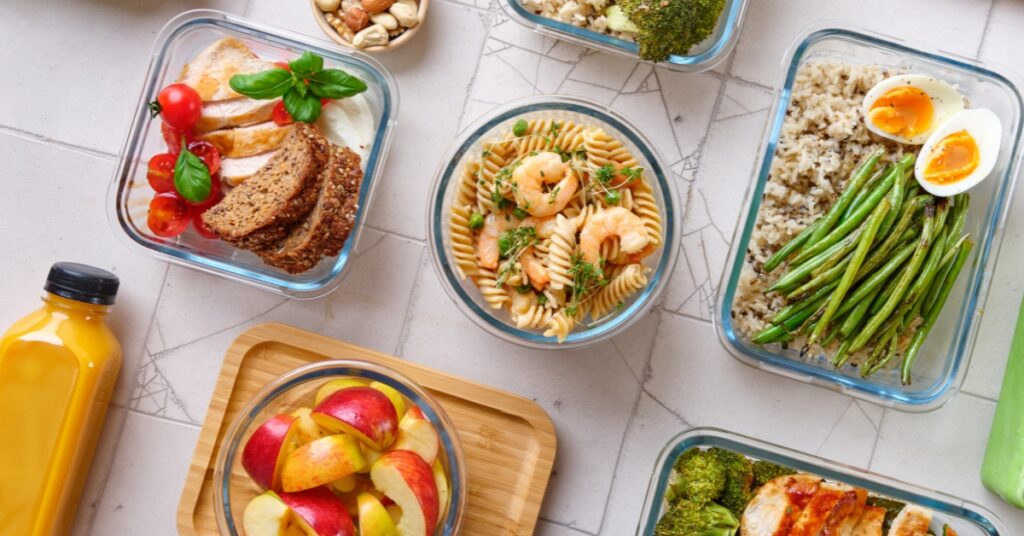By: Kelli Kieselbach
Food prep and cooking are often the first things to go out the window when you’re running on empty. Sound familiar?
This is completely understandable…but also a bit tricky, because nutrition plays a foundational role in supporting your health, especially when managing chronic illness, pain, and fatigue conditions like fibromyalgia, ME/CFS, or long COVID.
The good news? Healthy, nourishing food doesn’t have to be gourmet or time-consuming. With a little planning, you can set yourself up for better days—without burning through your energy reserves.
Below are some simple, low-effort strategies that can make a big difference.
1. Buy Pre-Chopped Veggies
These can be a game-changer on low-energy days. Most supermarkets offer pre-chopped vegetables like:
- Carrot sticks
- Diced pumpkin
- Broccoli florets
Look for them in the fresh or frozen section. Use what you need and freeze any extras to reduce waste and save prep time later.
2. Batch Cook and Freeze Meals
Use your better energy days to prepare for the not-so-good ones. Meals like:
- Bolognese sauce
- Curries
- Quiche
- Soups and stews
These all freeze well and reheat easily. Doubling a recipe while you’re already cooking can give you extra meals without extra effort.
3. Keep Boiled Eggs and Tinned Tuna on Hand
Boiled eggs (in their shells) last in the fridge for up to five days and are great for a quick breakfast or snack.
Tinned protein options like tuna, salmon, or sardines are also shelf-stable, easy to use, and rich in nutrients.
4. Use a Slow Cooker to Your Advantage
If your energy or pain tends to dip later in the day, a slow cooker lets you get cooking done earlier—when you might be feeling more capable.
You can prep ingredients in the morning and let it cook throughout the day. Great for:
- Soups
- Stews
- Curries
- Even a whole chicken
5. Keep Chopped Fruit and Veg Ready to Grab
Cut up some veggie sticks or fruit when you’re feeling up to it and store them in airtight containers in the fridge. Adding a damp paper towel to the bottom helps prevent things like carrot and celery from drying out.
Having healthy food ready to grab means one less barrier to getting your daily nutrients in.
6. Batch Cook Grains and Carbs
When cooking rice, quinoa, pasta, or potatoes, make enough for a few extra meals. This cuts down prep time for later and has an added bonus:
Reheated rice and potatoes contain more resistant starch, a gut-friendly type of fibre that supports digestive health.
7. Try Gentle Meal Planning
Meal planning doesn’t have to be rigid or complicated. Even jotting down a few meal ideas or taking stock of what’s in your pantry can help reduce decision fatigue.
If you live with others, get them involved in the planning or prep. Sharing the load can make a big difference, both practically and emotionally.
Article supplied with thanks to Kelli Kieselbach.
About the Author: Kelli Kieselbach is a Naturopath and Nutritionist with a passion for a holistic and natural approach to health and wellbeing. Kelli has a special interest in chronic fatigue and chronic pain disorders, and also works to educate Christian ministry leaders in self care and avoiding burnout.
Feature image: Canva





